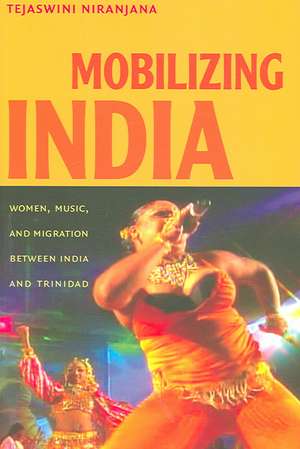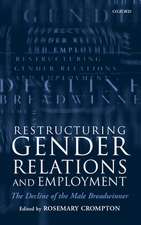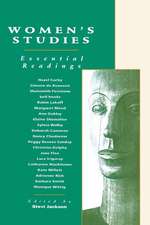Mobilizing India – Women, Music, and Migration between India and Trinidad
Autor Tejaswini Niranjanaen Limba Engleză Paperback – 11 oct 2006
Preț: 263.09 lei
Nou
Puncte Express: 395
Preț estimativ în valută:
50.34€ • 52.69$ • 41.90£
50.34€ • 52.69$ • 41.90£
Carte tipărită la comandă
Livrare economică 31 martie-14 aprilie
Preluare comenzi: 021 569.72.76
Specificații
ISBN-13: 9780822338420
ISBN-10: 0822338424
Pagini: 288
Ilustrații: 46 b&w photographs
Dimensiuni: 157 x 236 x 18 mm
Greutate: 0.43 kg
Editura: MD – Duke University Press
Locul publicării:United States
ISBN-10: 0822338424
Pagini: 288
Ilustrații: 46 b&w photographs
Dimensiuni: 157 x 236 x 18 mm
Greutate: 0.43 kg
Editura: MD – Duke University Press
Locul publicării:United States
Recenzii
Tejaswini Niranjana listens to the tones and echoes of Indianness in the Caribbean and elaborates a South-South genealogy that obligates us to reconceive the cultural geography of modernity. From the moral status of the coolie woman in British colonialist and Indian nationalist discourses to the figure of the Indian woman in Afro-Trinidadian calypso, Hindi cinema musics, and female chutney-soca performances, she pronounces the gendered rhythms of popular music as subaltern cultural politics.Lisa Lowe, author of Immigrant Acts: On Asian American Cultural PoliticsTejaswini Niranjanas fine achievement in Mobilizing India is to have given shape to a compelling way of rethinking the conceptual agenda for the comparative study of the Third World.David Scott, author of Conscripts of Modernity: The Tragedy of Colonial Enlightenment
Notă biografică
Tejaswini Niranjana is a Senior Fellow at the Centre for the Study of Culture and Society in Bangalore, India. She is the author of "Siting Translation: History, Post-Structuralism, and the Colonial Context" and a coeditor of "Interrogating Modernity: Culture and Colonialism in India."
Textul de pe ultima copertă
"Tejaswini Niranjana's fine achievement in "Mobilizing India" is to have given shape to a compelling way of rethinking the conceptual agenda for the comparative study of the Third World."--David Scott, author of "Conscripts of Modernity: The Tragedy of Colonial Enlightenment"
Cuprins
Acknowledgments vii
Note on Usage ix
Introduction 1
1. “The Indian in Me”: Studying the Subaltern Diaspora 17
2. “Left to the Imagination”: Indian Nationalism and Female Sexuality 55
3. “Take a Little Chutney, Add a Touch of Kaiso”: The Body in the Voice 85
4. Jumping out of Time: The “Indian” in Calypso 125
5. “Suku Suku What Shall I Do?”: Hindi Cinema and the Politics of Music 169
Afterword: A Semi-Lime 191
Notes 223
Bibliography 253
Index 267
Note on Usage ix
Introduction 1
1. “The Indian in Me”: Studying the Subaltern Diaspora 17
2. “Left to the Imagination”: Indian Nationalism and Female Sexuality 55
3. “Take a Little Chutney, Add a Touch of Kaiso”: The Body in the Voice 85
4. Jumping out of Time: The “Indian” in Calypso 125
5. “Suku Suku What Shall I Do?”: Hindi Cinema and the Politics of Music 169
Afterword: A Semi-Lime 191
Notes 223
Bibliography 253
Index 267
Descriere
A South-South perspective on how the mobilization of citizens within Trinidad and India has affected female identities.
















